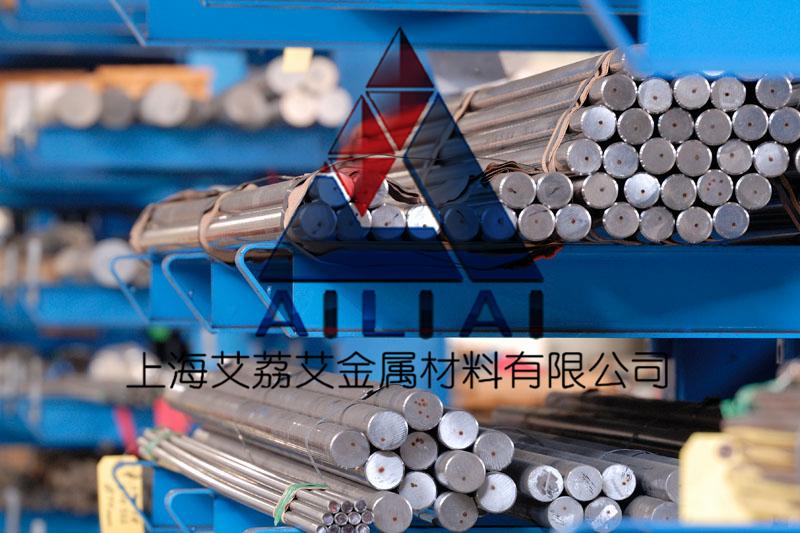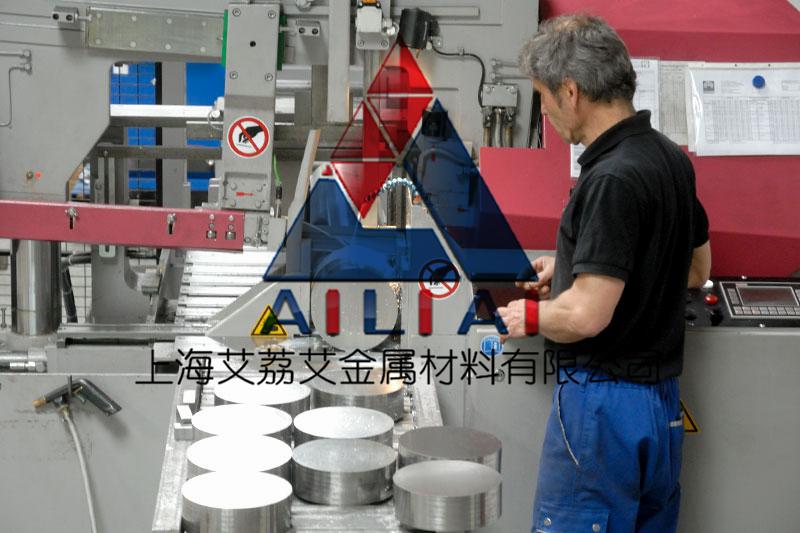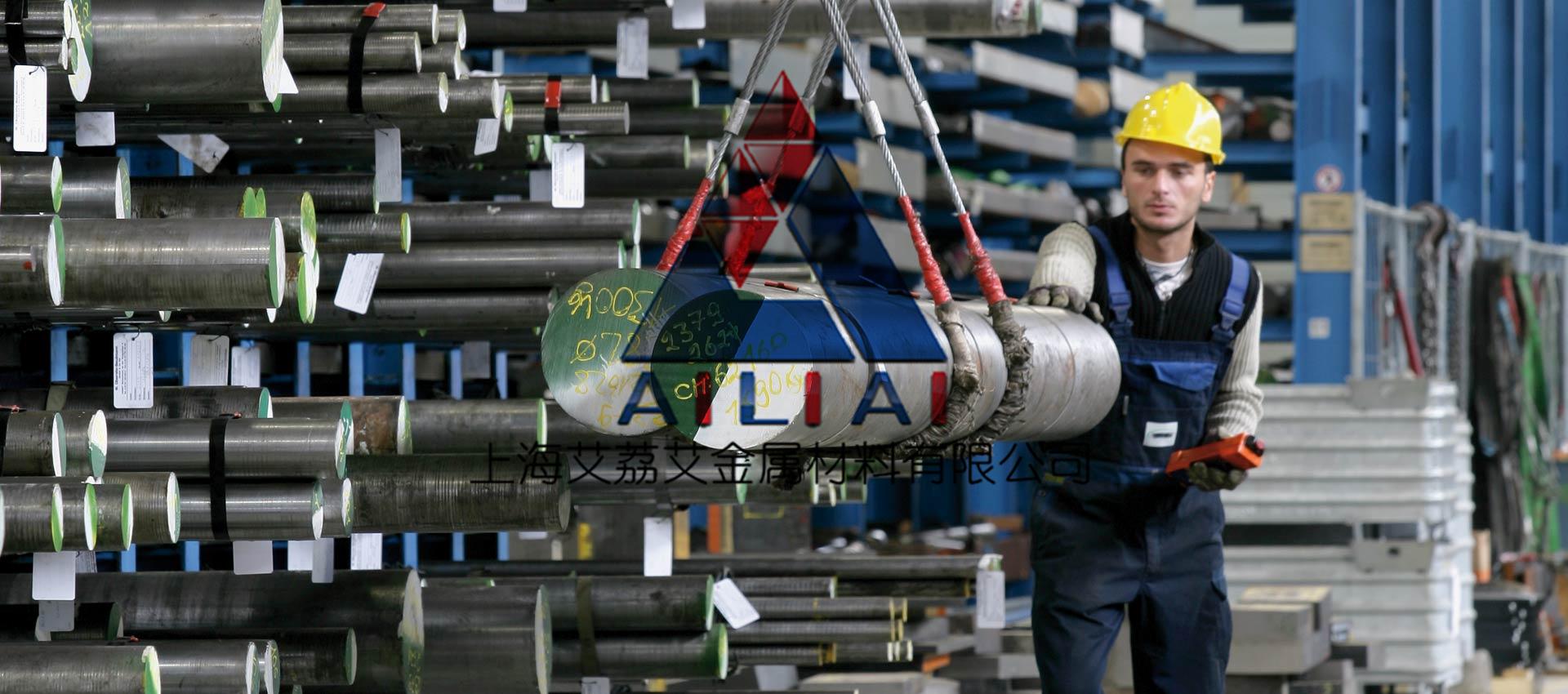Chrome Core® 13-FM Alloy美国卡朋特Carpenter进口铬铁合金不锈钢化学成分力学物理性能
Chrome Core® 13-FM Alloy美国卡朋特Carpenter进口铬铁合金不锈钢化学成分力学物理性能
|
Single figures are nominal except where noted.
|
| Carbon (Maximum) |
0.03 |
% |
Manganese |
0.50 to 1.25 |
% |
| Phosphorus (Maximum) |
0.030 |
% |
Sulfur |
0.200 to 0.400 |
% |
| Silicon |
1.20 to 1.80 |
% |
Chromium |
12.50 to 13.50 |
% |
| Molybdenum |
0.20 to 0.50 |
% |
Iron |
Balance |
|
|
| |
|
Chrome Core® 13-FM alloy is a controlled chemistry, ferritic 13% chromium alloy which is a candidate for use in magnetic components where corrosion resistance superior to pure iron, low carbon steel and silicon-iron alloys is desired without the substantial decrease in saturation induction associated with the 18% Cr ferritic stainless steels.
|
|
Applications could include electromechanical devices requiring some degree of corrosion resistance, either in service or for extended shelf life without the need for protective coatings. Chrome Core® alloys have been considered for use in automotive components such as fuel injectors, fuel pump motor laminations and ABS solenoids.
|
| |
|
Important Note:The following 4-level rating scale is intended for comparative purposes only. Corrosion testing is recommended; factors which affect corrosion resistance include temperature, concentration, pH, impurities, aeration, velocity, crevices, deposits, metallurgical condition, stress, surface finish and dissimilar metal contact.
| Nitric Acid |
Moderate |
Sulfuric Acid |
Restricted |
| Phosphoric Acid |
Restricted |
Acetic Acid |
Restricted |
| Sodium Hydroxide |
Moderate |
Salt Spray (NaCl) |
Restricted |
| Humidity |
Good |
|
|
|
| |
| Specific Gravity |
| -- |
7.61 |
|
| Density |
| -- |
0.2750 |
lb/in³ |
| Mean CTE |
| 77 to 212°F |
5.70 |
x 10-6 in/in/°F |
| 77 to 392°F |
6.00 |
x 10-6 in/in/°F |
| 77 to 572°F |
6.20 |
x 10-6 in/in/°F |
| 77 to 752°F |
6.40 |
x 10-6 in/in/°F |
| 77 to 932°F |
6.50 |
x 10-6 in/in/°F |
| 77 to 1112°F |
6.60 |
x 10-6 in/in/°F |
| Modulus of Elasticity (E) |
| -- |
27.0 |
x 103 ksi |
| Electrical Resistivity |
| 70°F |
468.0 |
ohm-cir-mil/ft |
| Saturation Flux Density |
| -- |
17000.0 |
G |
| Coercivity |
| -- |
1.80 |
Oe |
| Magnetic Permeability |
| -- |
2900.0 |
Mu |
| Residual Induction |
| -- |
11400 |
G |
| |
|
The recommended heat treatment practice for Chrome Core® 13-FM alloy is to anneal at a temperature of 820°C ± 14°C (1508°F ± 25°F) for 2 to 4 hours. Annealing temperatures above 850°C (1560°F) should be avoided because of potential degradation of the magnetic properties.
The cooling rate after the anneal is not critical although rapid cooling and quenching may induce stresses which impair the magnetic characteristics. Any inert annealing atmosphere such as vacuum, inert gases or dry forming gas is satisfactory. Attempts to decarburize the alloy using a wet hydrogen atmosphere are not recommended. Similar heat treating practices can be used to soften the alloy for further forming.
|
| |
|
Chrome Core 13-FM alloy can be formed and cold drawn. Cold work will increase the hardness and degrade the magnetic properties. Because it is free machining, Chrome Core 13-FM alloy will withstand less cold work than non-free machining ferritic alloys and is not recommended for parts produced by large amounts of cold deformation.
|
|
Chrome Core 13-FM alloy is not recommended for most arc welding or oxyacetylene welding processes due to the free machining nature of the alloy. Solid state welding, such as friction or inertia welding, as well as high-energy processes, such as laser and electron beam welding, may be satisfactory. Post weld heat treatment is desirable for toughness and magnetic performance. Use of austenitic stainless steel filler metal is not recommended due to the magnetic air gap created.
|
| |


